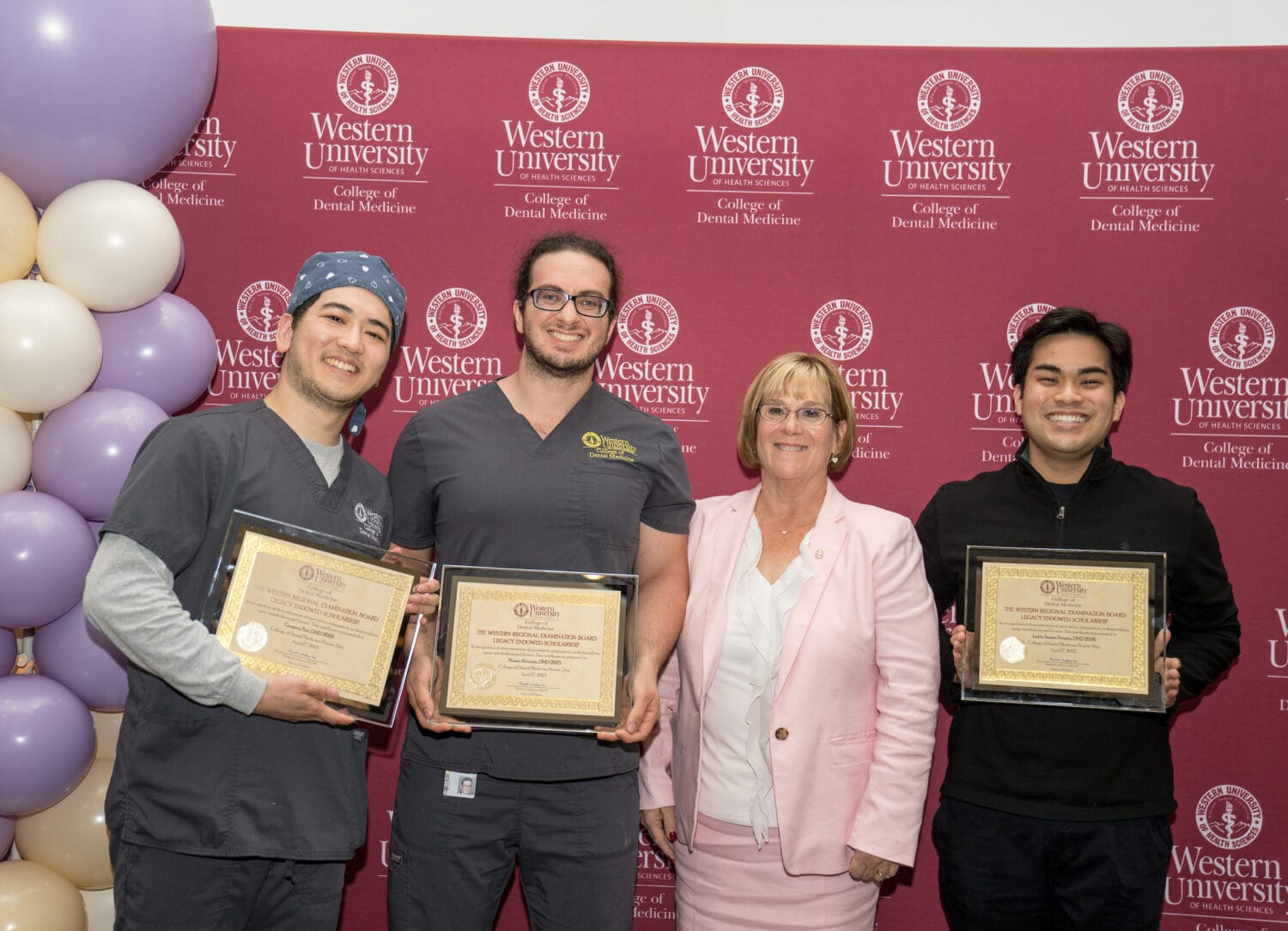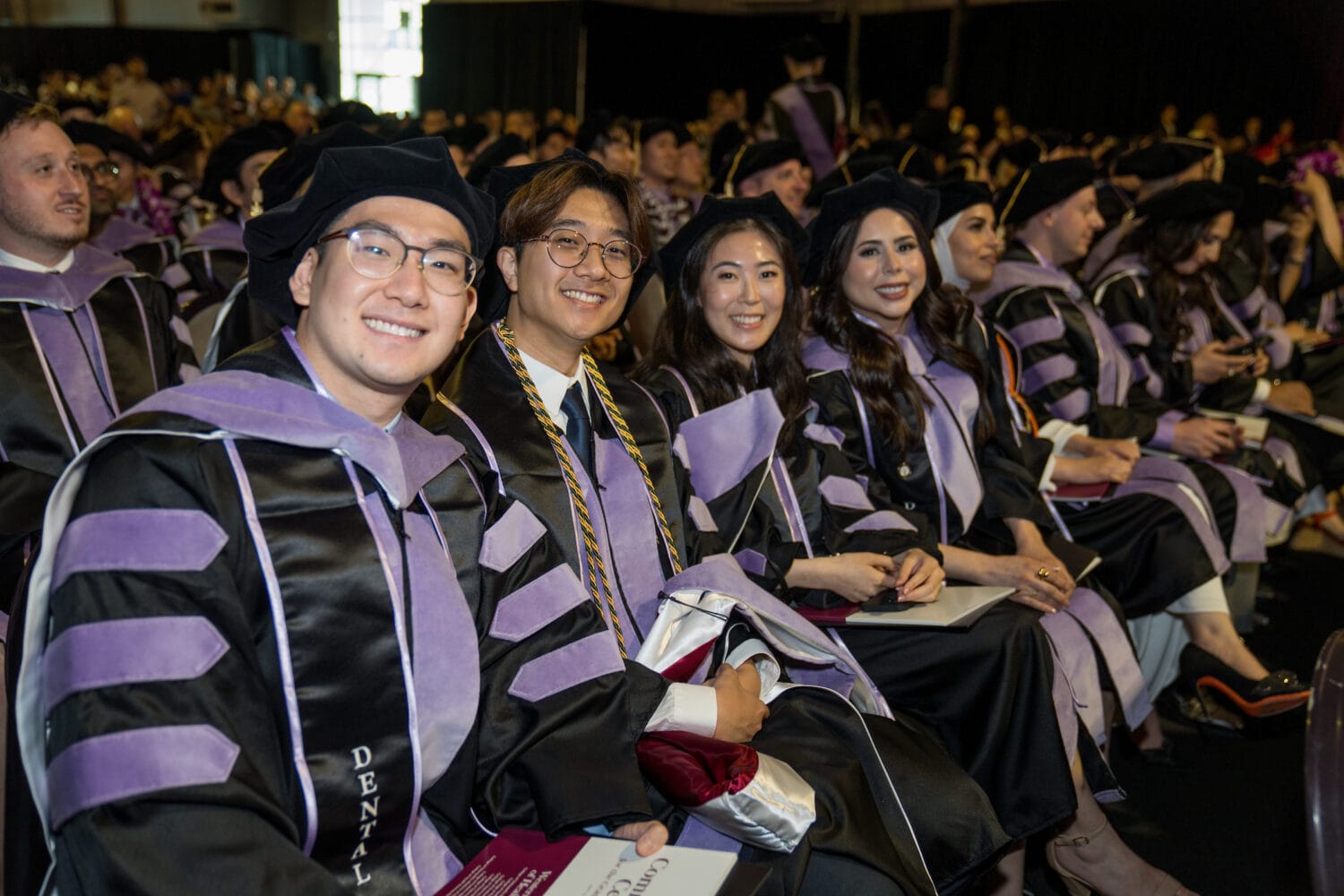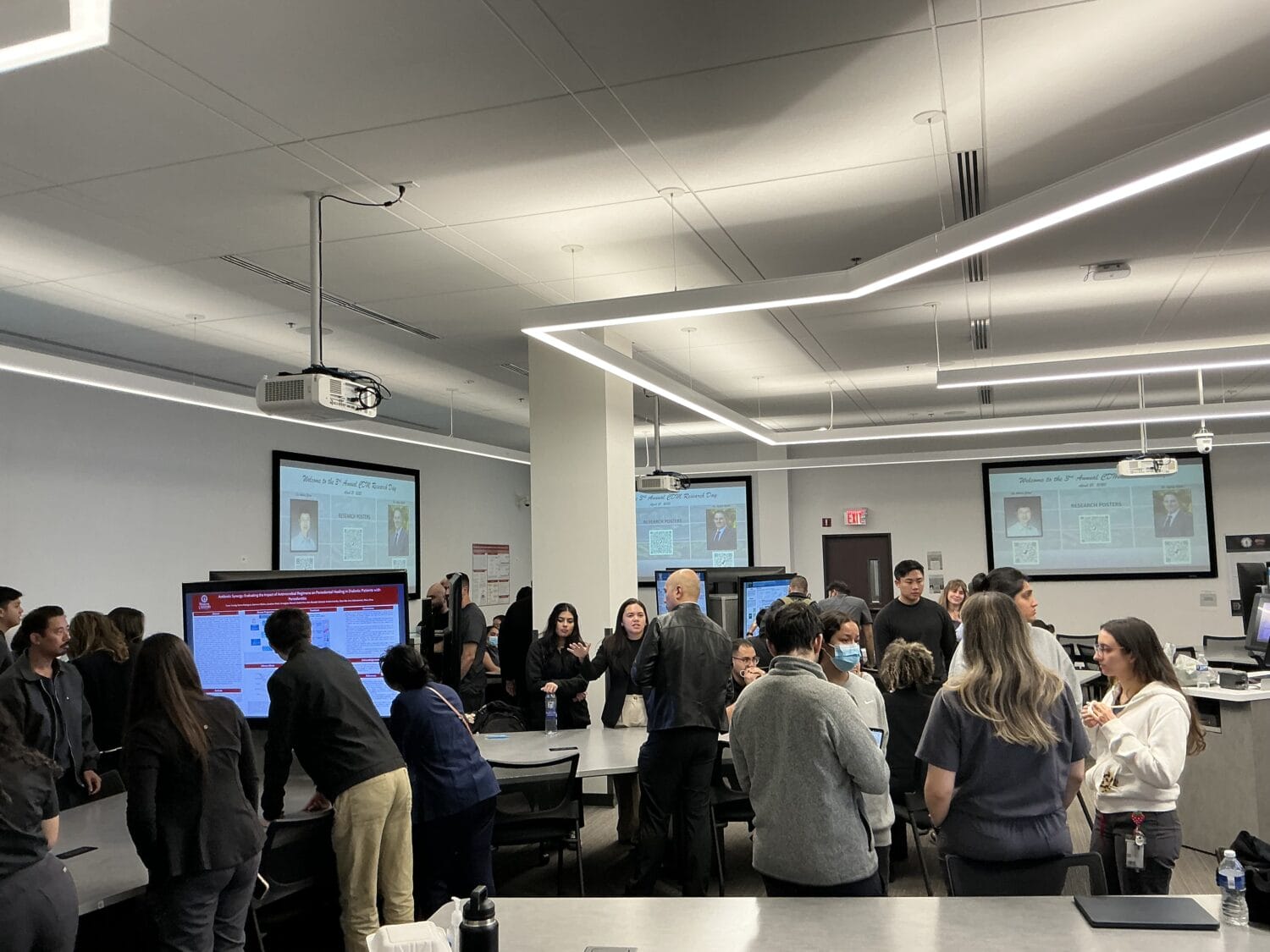College of Dental Medicine team opens educational exchange with Chilean university
Western University of Health Sciences in Pomona, California and Universidad de Concepción in Chile are separated by more than 5,000 miles, but College of Dental Medicine (CDM) students and faculty learned they are not so far apart when it comes to dental education.
CDM Associate Dean for Community Partnerships and Access to Care Timothy Martinez, DMD, CDM Assistant Professor/Clinical Managing Partner Bertha Alarcon, DDS, and second-year CDM students Christopher Burke and Adrian Time visited Universidad de Concepción in Chile from May 24 to June 7, 2014. They learned about dental education, visited community outreach centers, met university and government officials, and set the stage for future collaboration and exchanges.
The connection between the two universities was established by Conrado Barzaga, MD, executive director of the Center for Oral Health, which is housed on WesternU’s Pomona campus. Barzaga learned about Universidad de Concepción’s strong public health-oriented curriculum at an international dental conference. He and Martinez traveled to Chile a year ago to meet with university officials.
"We felt it was an excellent university that had the same philosophies, principles and goals we do," Martinez said. "They send students out on community-based programs. They are able to prove that they’ve been able to improve oral health outcomes in the community. What they’re trying to do is expand their program more within their country. They have a model that works."
WesternU’s College of Dental Medicine also emphasizes community outreach. CDM’s community model emphasizes getting children into the oral health care delivery system, or dental homes, by age 1. Other goals include sustainability and getting dental students comfortable with treating young patients. CDM established school-based oral health centers in Pomona and El Monte to provide comprehensive dental health care in more convenient and familiar settings for children.
Universidad de Concepción has the same building blocks of humanism as WesternU, Martinez said.
"They’re very focused on public health," he said. "Every day we visited a different site, and were presented a different model of the public health system. They attained almost zero cavities in one generation. The index for mortality in newborns is zero. They controlled it by networking their health system. Chile has placed health care as a priority, and the remotest area has access to health care. The health team of physicians, dentists, physical therapists, midwives, psychologists and podiatrists visit at least once per month."
Martinez looked for CDM students willing to invest the time required for this international project. Burke and Time did all the paperwork and developed the project, Martinez said.
"We met ministries of health. We met individuals who set policy for the country.
Our dental students were able to network at that level," he said. "We had dinner with professors and deans. Our students handled themselves well."
The Universidad de Concepción taught the WesternU team how to deliver a painless form of minimally-invasive caries halting technique known as interim restorative technique (IRT). They performed IRT on elementary school students the next day. The procedure does not involve needles or injections, and most children respond well to it, Burke said.
"We went down there to study various oral public health projects the school is involved in," he said. "We went to several different community health clinics, similar to FQHCs (federally qualified health centers) in the U.S. They also had school-based oral health projects where they send students and faculty to elementary schools for dental treatment intervention."
A Chilean dental student showed them how to do community presentations and question and answer sessions, Burke said.
"We went to a small community, to an area reserved for public gatherings. Elderly women in the community sat down with us, and we taught them how to brush their teeth properly and maintain their dentures," he said. "These elderly women were not only improving their own hygiene, but also talking to children."
Community buy-in is important for an effective oral health program, Martinez said.
"It doesn’t work with an outsider. Community advocates who live within the community are very proactive in educating," he said. "We’re going to start doing this in the school districts we’ve been working in. It’s more effective. In Pomona, we are working with parents to become team leaders. It’s more effective if coming from the local community."
Oral health is a priority, not just at the Universidad de Concepción, but throughout Chile.
"The Chilean government, as part of its budget, has made prevention and promotion of health important," Alarcon said. "A lot of the schools we visited were in lower income communities, but they all have sinks for children to brush their teeth."
"Down in Chile they’re doing something very cost effective to combat early childhood caries (cavities). They give all children toothbrushes and set a time in the day when they should brush their teeth," Burke said. "We are trying to bring that back here. It’s important to start on a small scale."
Traveling to another country provides new perspectives and fresh insight.
"Here we have a system that focuses on treatment of dental diseases, whereas over there they place more emphasis on active prevention of dental diseases," Time said. "Their idea is, ‘Let’s see what’s going to have the greatest mass effect on society. How can we objectively lower caries risk?’"
This was a good opportunity to talk to students to see what it’s like to study dentistry in a different country, Burke said. They also hope to invite Universidad de Concepción students to visit WesternU as part of an international exchange.
"There are more similarities than differences between campuses,’ Burke said. "This has been an amazing experience. We have the ability to change the paradigms we have about dentistry in our communities, and how to provide different services for children and preventing early childhood caries."



